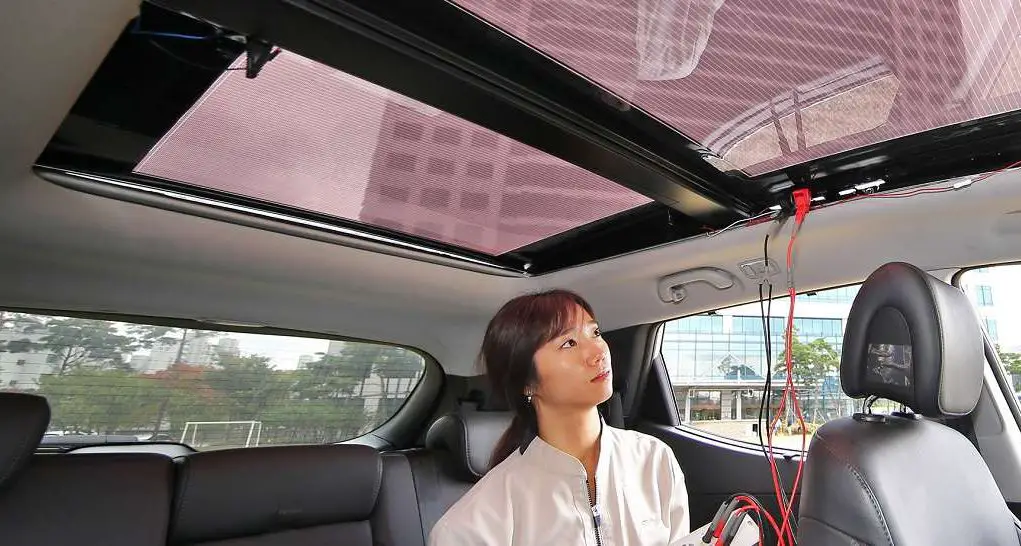I always wondered why EV’s don’t have solar roofs and it looks like Hyundai is beating everyone to the punch.
The Kia Stinger GT, the whole Genesis lineup, and now these new-fangled solar roofs, how could you not like what the Koreans are doing for the car world. According to Hyundai in an official press release they dropped earlier yesterday (Oct. 31,2018) Hyundai is actively developing eco-friendly solar charging systems that, in stages, will see EV’s get these solar roofs and solar hoods where you can literally park your car in the sun and it’ll charge itself.
Here comes the sun: Hyundai and Kia will launch solar roof chargers on select electric, hybrid and combustion engined models, starting in 2019 https://t.co/lqhyCZLakp pic.twitter.com/jtFiwMc1nV
— Autocar (@autocar) October 31, 2018
This is not new technology by any means and Hyundai is not the first car maker to carry this type of technology on their lineup. Toyota infamously had solar roofs optional on the Toyota Prius Prime which, like these solar roofs being developed by Hyundai, can charge your EV or Hybrid’s battery.
Tesla is also working on some kind of solar roof technology and they already have solar roofs and solar tiles for houses so they can easily transfer that technology to cars.
Here’s the thing, solar roofs, at the moment, aren’t the most attractive option to have on your car. If you really want a full blown solar panel on your car, it’ll show. After all, you’ve got to expose the entire solar cell to the sun for the thing to work effectively. That’s why Hyundai is developing this solar roof technology in three stages.
The first generation of solar roof is like Diet Solar. On an average day, typically you’ll be able to charge 30-60 percent of your hybrid’s battery sitting in the sun. Not bad.
The second generation is a bit more tricky and expensive, semi-transparent solar roofs. These solar roofs you’ll be able to see through and can charge your car’s battery and the supplementary battery for your hybrid. It also must be strong enough for safety purposes.
The third generation solar roof/solar hood is what I’m really excited about. This new solar lid technology will be applied to the roof and hood for max sun exposure.
In ideal conditions, this system can produce 100 Wh of energy per hour. Some simple maths and you can see just how long it would theoretically take for you to charge your EV battery.
The Hyundai Ioniq has a 28 kWh battery so, with 100 Wh of juice coming in, from empty, it would take 280 hours of continuous sunlight. Let’s say you park at work and let your car sit for eight hours in the summer sun, that’s an additional .8 kWh added to your battery, roughly 2.8 percent of your total, or 3.5 miles of range. Not bad considering you’re doing absolutely nothing. For some people who work near home, their commute is only 3.5 miles or less.
You don’t even have to do the maths to figure out that this optional solar roof/hood won’t be economically feasible, but, the people that option this technology out aren’t the type to worry about it equalling out on paper. It’s new tech that’s just plain cool, charging in the sun. I reckon people will pay if only for the novelty factor and to be the first to get it for their Hyundai.
Solar panel technology isn’t going to grow by leaps and bounds the way electric battery tech is but it’s definitely going to get better, and so will the solar roof technology.
Source: Hyundai



